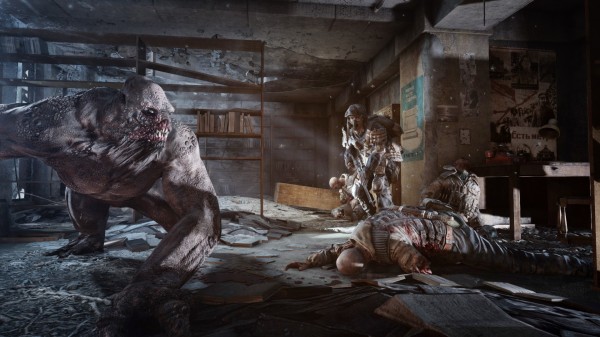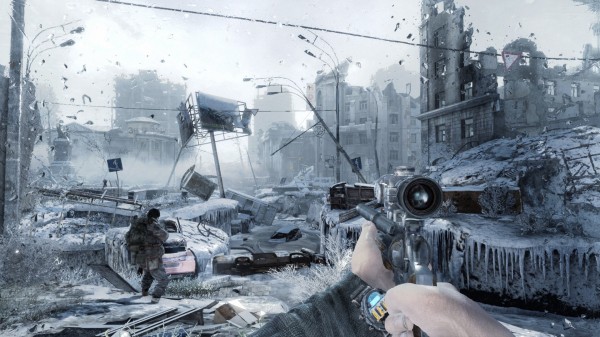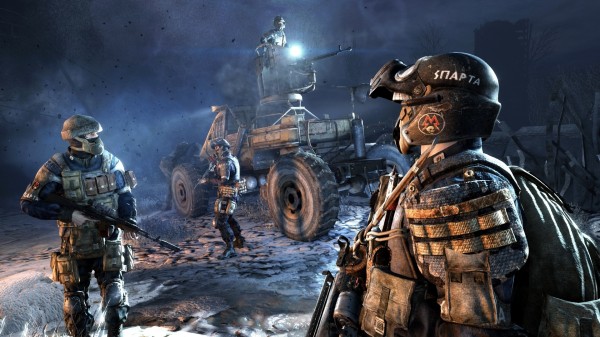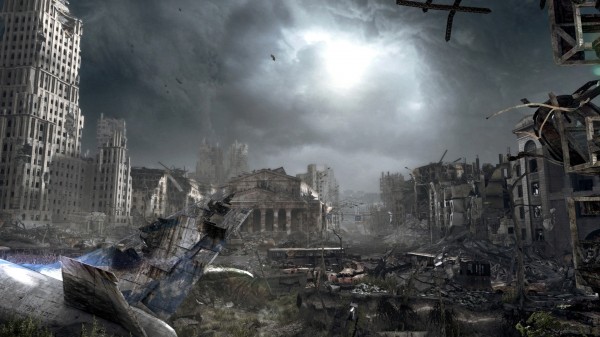
Metro Redux PC Review
The video games industry is such an interesting place to watch trends appear and see how they grow or fail. Case in point – video game remasters that began to appear towards the latter half of the last generation’s life. I use the word remasters, because remake, to me at least, signals a huge change in the game. A perfect example of this, and one that I see as the pinnacle of the remake example, is Resident Evil (REmake) on the GameCube. Capcom completely overhauled the game with new graphics, audio and extra content that built on the main game by adding new rooms and other bonuses. Most games that are remade mostly fall into the remastered category, as they are simply touched up a bit and given a higher resolution or better frame rate, such as the recent The Last of Us Remastered or the God of War ports to PlayStation 3.
Unlike last generation, these new consoles seem to be getting remasters at the beginning of their life, no doubt to fill in gaps between new releases. Developers seem to be having issues with creating games for these new systems, since delays have been mentioned time and time again, especially delaying games until 2015. Coming to join in on releasing remasters is Deep Silver, who is releasing Metro Redux, a remastering of two games, one that came out in 2010, Metro 2033, and Metro: Last Light – a title that was only launched last year – for PS4, Xbox One and PC.

Metro Redux is a good example of the remasters concept, especially more so on consoles, since this allows console players the chance to experience these two great atmospheric games extremely close to the graphically fidelity and frame rate of the PC versions, instead of the lower resolution and 30 frames per second of the Xbox 360/PS3 releases.
Without a doubt the biggest update comes to Metro 2033, and this is true even on the PC, where Metro 2033 was already a looker, but this Redux version of Metro 2033 comes rebuilt with the new updated 4A Engine, which brings along a host of graphical improvements and mechanics from Metro: Last Light into Metro 2033. This is a rather smart thing to do, as some people had issues with the combat in Metro 2033, but enjoyed it in Metro: Last Light, and combining the two means those people will likely enjoy Metro 2033 more than they originally did. Of course, the people who originally liked Metro 2033 because of what it was doing with the scarcity of ammo and the feeling of using worn down weaponry might think this removes the soul of what they liked about Metro 2033, but there is a setting that lets you play the game with the scarcity of ammo and gas masks intact, but the weapons still feel the same as Metro: Last Light. You can also use this mode in Metro: Last Light Redux to make that game harder.

Adding Metro: Last Light’s improved mechanics to Metro 2033’s gameplay has quite the effect. I never once felt the danger of my gas mask running out of oxygen, which was something that caused nerves to appear when the analogue watch – which is now the digital version from Metro: Last Light unless you pick survival – would be used to warn you that the filter needs switching for a fresh one. I remember that I was always coming close to running out of clean oxygen, but luckily around the corner a filter would be happily waiting for me to pick up, just in time to spare my lungs from dirty air. In Redux, I always seemed to have a good chunk of time, so the gas mask never became an issue. This does remove the survival aspect of the first game and makes it less daunting for new comers to the franchise.
On the flip side, it makes the overall experience better. Menus are more fluid and easier to navigate around, thanks to incorporating Metro: Last Light’s better menu design. Such issues as the horrid stealth AI have been improved. Sneaking around some sections felt easier, and enemies didn’t spot you from the other side of the map when you’re camped in darkness. This reworked AI is for the better, but there are still instances where you can gather yourself in protection down a one-way corridor and plough through enemies with bullets, as they seem to forget how to approach a corridor with any tactical knowledge. Lighting comes across more natural – the original had an artificial, overpowering lighting engine, which looked awesome in an artistic sense, but didn’t “look” right, and character models have been improved by removing the plastic figurine look, giving them a natural presence in the dark, dreary tunnels of the Russian metro.

Moving onto Metro: Last Light Redux. It’s clear that while this makes a good case to be on consoles, since those systems never had power to run the game at 1080p and 60fps, on PC, it makes little sense. Metro: Last Light is only a year old, and the technology behind it was brilliant back then. Even the developers know that PC owners of Metro: Last Light might be a little worried about what they are actually getting, as a post on the Steam forums from one of the developers states that “Metro: Last Light Redux, we will readily admit, does not represent as significant a change over the original,” and this is correct.
The added mode of Metro 2033’s survival gameplay and the inclusion of all the DLC aren’t really worthwhile for existing fans who own the game on PC already. Thankfully, there are options on Steam to purchase just Metro 2033 Redux. Options like this in the industry are good, and it’s nice that a developer openly acknowledges that one of their titles hasn’t changed much in its re-release. This bundle demonstrates both sides of how to do the remastered concept on PC – the great work on Metro 2033, but nothing special on Metro: Last Light. Again, it should be pointed out that this is due to the developers wanting to target the new consoles and bring the better engineered and performing Metro games to those systems – they have done that, while also giving fans or new PC owners the chance to play them as well. Let’s be honest, people would complain if Metro Redux didn’t show its face on PC.

Due to Metro: Last Light Redux being virtually the same, you can check my review of its original release here. Everything I mentioned in that review still holds true today. One thing to note about these two games being bundle together is that thanks to the changes made in Metro 2033 Redux, the two games feel like one unified adventure that thoroughly captures an amazing atmosphere of this post-apocalyptic Moscow under the threat of bizarre monsters and supernatural entities, and also from the human race itself, as political unrest between various factions causes issues for everyone in the underground. This is a game that thrives on creating a superb and believable world and an atmosphere that most games would love to achieve. If there is a shining example of a game being able to grab a player and have them immersed into its world, then Metro Redux surely deserves to be near the top of that list.
Metro Redux has to be looked at from two views. If you have never played the games, then this is outstanding value for money for two great first-person shooters with an amazing setting, brilliant atmosphere, fantastic graphics and solid gun combat. PC fans with existing copies of both Metro games will most likely want to purchase the Metro 2033 Redux side of the package, as the improvements are worthwhile to play through that game again. Metro: Last Light Redux, on the other hand, doesn’t come with enough extras to be worthwhile for anyone but the most hardcore rangers that live and breathe the Metro.
